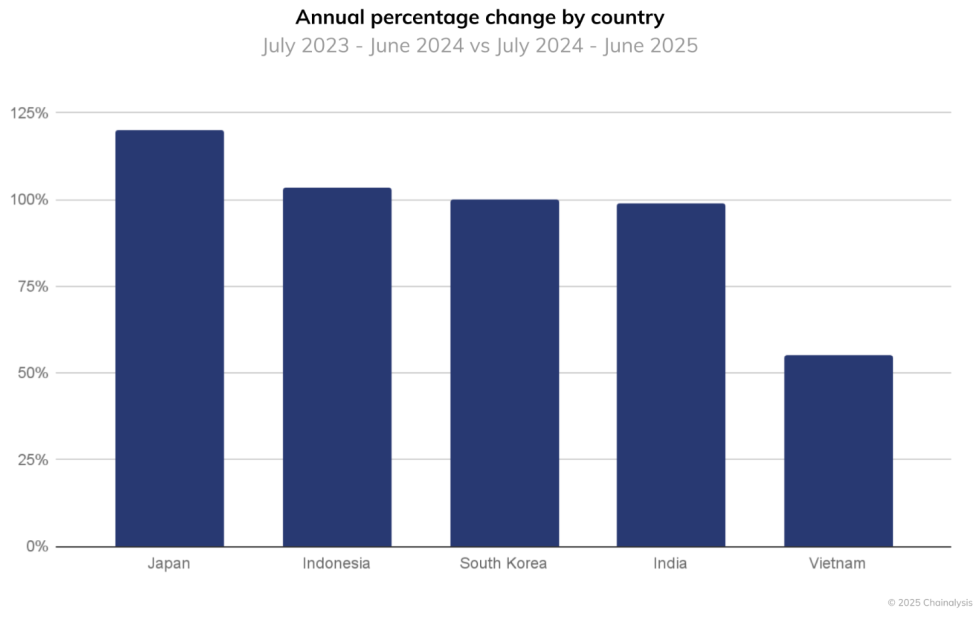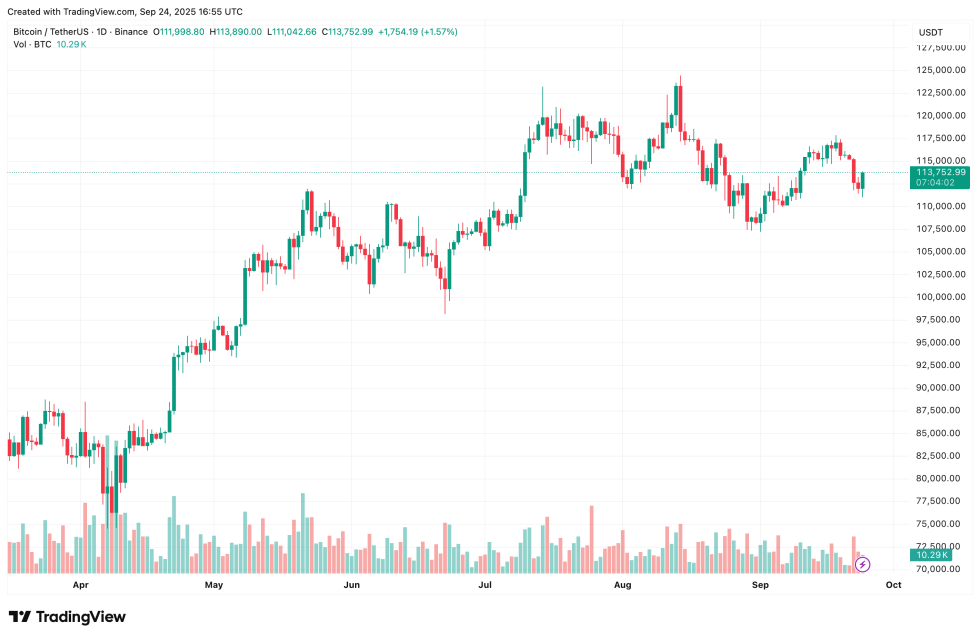Japan Dominates APAC Crypto Growth in 2025 - Leaving Traditional Finance in the Dust
Rising Sun, Rising Markets: Japan's Crypto Surge Redefines APAC Finance
The Land of the Rising Sun just became the land of the rising crypto market. Japan's digital asset ecosystem explodes past regional competitors, establishing unprecedented growth trajectories while traditional banks scramble to keep pace.
Regulatory Clarity Fuels Fire
Japan's Financial Services Agency cuts through bureaucratic red tape with precision. Their progressive framework bypasses the regulatory paralysis gripping other nations. Clear rules meet institutional adoption - creating a perfect storm for market expansion.
Institutional Money Finds Home
Major Japanese corporations dive headfirst into digital assets. Traditional finance giants pivot toward blockchain infrastructure. The shift leaves legacy systems looking increasingly obsolete. Pension funds and asset managers allocate percentages that would make Wall Street blush.
Retail Adoption Goes Mainstream
Convenience stores now facilitate crypto purchases alongside bento boxes. Payment integrations spread faster than sushi conveyor belts. The public embraces digital assets with an enthusiasm that makes credit cards seem quaint.
APAC's New Crypto Epicenter
Regional competitors watch Japan's ascent with mixed admiration and panic. Singapore's cautious approach suddenly looks conservative. South Korea's retail frenzy lacks Japan's institutional depth. China's ban continues to benefit its neighbor immensely.
As traditional finance clings to spreadsheets and SWIFT transfers, Japan builds the future. The numbers don't lie - while bankers debate blockchain over expensive lunches, the real financial revolution happens without their permission.
Japanese Crypto Ecosystem Witnesses Strong Growth
According to a recent report by Chainalysis, titled “APAC crypto Adoption Accelerates with Distinct National Pathways,“ the APAC region was the fastest-growing region in the world in terms of on-chain value received.
While typical digital assets leaders such as India, South Korea, and other countries continued to make strides in terms of adoption, Japan emerged as the unanticipated leader in 2025, growing its on-chain value received by 120% in the 12 months to June 2025.

In comparison, Indonesia saw an increase by 103%, while South Korea witnessed a 100% growth in on-chain value received. Similarly, India’s on-chain value surged by 99%, while Vietnam’s increased by 55%.
It should be noted that in the previous years, Japan’s crypto market had been relatively subdued compared to its Asian neighbors. The report attributes the growth in the Japanese digital assets ecosystem to the numerous favorable policy developments it has initiated in recent years.
For example, earlier this year, leading stablecoin issuer Circle announced that it WOULD deepen its business operations in Japan and ensure easy access for the Japanese to its flagship USDC stablecoin. This comes after years of regulatory bottlenecks that restricted the listing of stablecoins on Japanese crypto exchanges.
Another potential factor is the Japanese traders’ growing interest in digital assets trading, especially altcoins. Over the 12 months to June 2025, XRP accounted for $21.7 billion in fiat trading activity. Meanwhile, Bitcoin (BTC) and ethereum (ETH) saw $9.6 billion and $4 billion in fiat trading activity, respectively.
The high-volume trading in XRP is important, as it shows that Japanese investors may be becoming more comfortable taking bets on the real-world utility of the XRP token, following Ripple’s strategic partnership with SBI Holdings.
India and South Korea Score High In Adoption
Besides Japan, India and South Korea emerged as the two other major crypto countries in the APAC region. However, the growth factors that spurred their digital assets ecosystem differ.
For instance, India’s digital assets growth is a result of grassroots adoption and institutional strength. In addition, India’s broader digital economy provides further growth to the budding digital assets industry in the country. However, high taxation remains a concern for digital assets businesses.
Similarly, South Korea’s crypto industry benefited due to rapid growth in stablecoin usage in the country. Notably, the Korean won (KRW) purchases of stablecoins reached $59 billion in the 12 months to June 2025.
That said, higher crypto adoption is bringing a new set of challenges for regulators. Recently, a South Korean lawmaker called for measures to address the high number of suspicious digital assets transactions. At press time, BTC trades at $113,752, up 0.8% in the past 24 hours.


